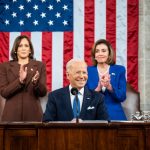Political correctness, once a term used to encourage respectful dialogue, has now morphed into a tool of censorship, wielded by those who want to control what we can and cannot say. At its core, political correctness seeks to eliminate language deemed offensive or harmful. However, it often goes too far, stifling free speech and suppressing dissenting opinions. Instead of fostering open conversation, it enforces a rigid orthodoxy, punishing those who dare to speak out of line.
One of the most glaring examples of this is the rise of "cancel culture." Celebrities, politicians, and even average citizens are at constant risk of losing their jobs, reputations, or social standing for uttering a single, politically incorrect statement. This culture of fear discourages people from expressing their true thoughts and opinions, leading to a homogenized society where only approved ideas are allowed to flourish. It’s censorship, plain and simple, disguised under the guise of protecting feelings.
Moreover, the arbiters of political correctness often wield their power selectively. A joke made by one person might be excused as harmless, while the same joke told by someone else leads to public outcry and demands for punishment. This selective enforcement reveals the true purpose of political correctness: to control the narrative and silence those who threaten the status quo. It’s not about fostering respect or understanding; it’s about maintaining power.
Political correctness also undermines intellectual diversity, which is essential for a healthy democracy. Universities, once bastions of free thought, have become echo chambers where only left-leaning ideas are welcome. Conservative voices are marginalized or outright banned, creating an environment where students are exposed to a narrow range of perspectives. This lack of diversity stunts intellectual growth and discourages critical thinking, leaving graduates ill-prepared to engage with the world’s complexities.
In the media, political correctness dictates which stories are told and how they are framed. Certain topics, especially those that challenge progressive narratives, are often ignored or misrepresented. This biased reporting skews public perception and prevents a balanced understanding of current events. By controlling the flow of information, the proponents of political correctness effectively control public discourse, pushing their agenda while silencing opposition.
The impact of political correctness extends beyond speech and thought; it shapes policies and legislation as well. Laws are being crafted to punish so-called hate speech, but these laws are often vague and open to interpretation, giving those in power the ability to target dissenters. This legal overreach threatens the very foundation of free speech, a cornerstone of American democracy. When the government can dictate what is acceptable to say, we inch closer to authoritarianism.




